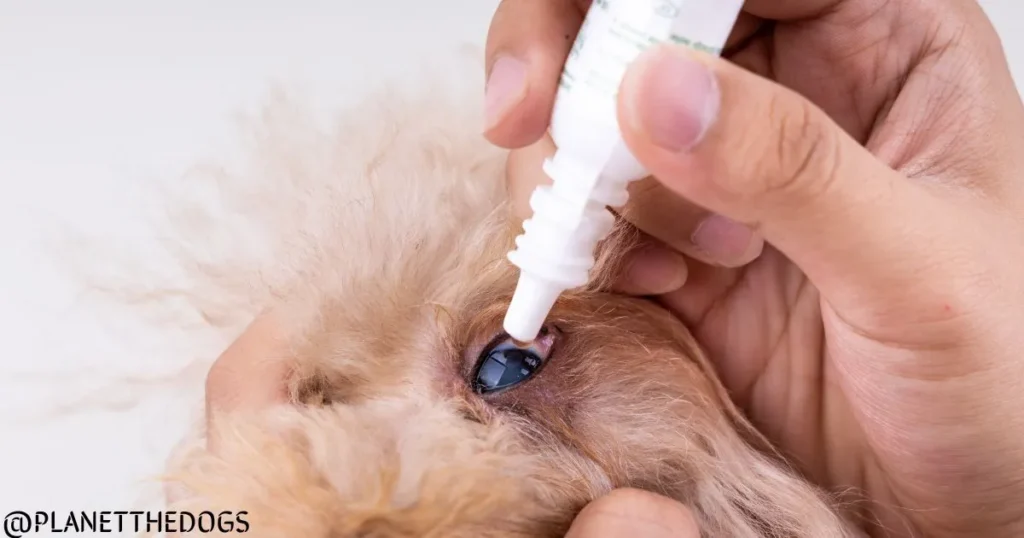Essential Vitamin K1 for Dogs: Benefits, Dosage & Side Effects
Every dog owner wants their pet to be healthy and full of life. Vitamin K1 for dogs is a key nutrient that’s often overlooked. It’s vital for blood clotting and keeping organs working right. It can really boost your dog’s health.
Knowing about vitamin K1 for dogs is important for all pet owners. It helps with healing and prevents health problems. Vitamin K1 can greatly improve your dog’s life quality.
Table of Contents
Key Takeaways
- Vitamin K1 is essential for blood clotting and overall canine health
- Dogs can obtain vitamin K1 through diet and supplements
- Different dog breeds may have varying vitamin K1 requirements
- Certain medical conditions might necessitate vitamin K1 supplementation
- Proper dosage and administration are critical for optimal results
In this guide, you’ll learn all about vitamin K1 for dogs. We’ll cover its science and how to give it to your dog.
Understanding Vitamin K1 and Its Role in Canine Health
Vitamin K1 is crucial for your dog’s health. It’s key to many important processes that keep dogs healthy. Knowing how vitamin k1 for dogs works helps pet owners choose the right food.
Dogs need certain nutrients for their bodies to work right. Vitamin K1 is one of these important nutrients for their well-being.
The Science Behind Vitamin K1
Vitamin K1 is a fat-soluble vitamin that helps with blood clotting and bone health. Dogs need it to keep their bodies working well. Its role in dogs is complex but vital.
- Supports blood coagulation processes
- Promotes healthy bone density
- Assists in protein activation
Natural Sources of Vitamin K1
| Food Source | Vitamin K1 Content |
|---|---|
| Leafy Green Vegetables | High |
| Kale | Very High |
| Spinach | High |
| Beef Liver | Moderate |
How Dogs Process Vitamin K1
Dogs digest vitamin K1 in their stomachs, turning it into active forms. Their liver stores and spreads this nutrient all over their body.
“Understanding nutrient absorption can help pet owners optimize their dog’s diet and overall health.” – Veterinary Nutrition Expert
While vitamin K1 is essential, it’s important to eat it in balance. This prevents health problems.
Essential Benefits of Vitamin K1 for Dogs
Vitamin K1 is key for your dog’s health. It helps keep your dog’s body working right. This nutrient is important for your dog’s overall health and body functions.
The main benefits of vitamin k1 for dogs are:
- Blood Clotting Regulation: It helps stop too much bleeding by making blood clot
- Bone Health Support: It keeps bones strong and healthy
- It protects the heart and blood vessels
- It might also help reduce inflammation
Vets say vitamin k1 is very important for pets. Dogs need vitamin K1 to stay healthy and avoid sickness.
“Vitamin K1 is not just a supplement, but a fundamental nutrient for canine wellness” – Dr. Sarah Richardson, Veterinary Nutrition Specialist
Dogs get vitamin K1 from foods like leafy greens, liver, and some plants. But, some dogs might need more because of their health or diet.
Vets suggest checking your dog’s vitamin K1 levels. They can help figure out if your dog needs extra vitamin K1 to stay healthy.
Signs and Symptoms of Vitamin K1 Deficiency in Dogs
It’s important to know the signs of vitamin k1 deficiency in dogs. This helps keep your pet healthy. Dog owners need to watch for warning signs of a serious nutritional issue.
Vitamin k1 deficiency can show up in different ways. These changes can be physical or behavioral. Knowing these signs is key to avoiding health problems.
Physical Symptoms of Vitamin K1 Deficiency
Dogs with vitamin k1 deficiency may have certain physical symptoms:
- Excessive bruising with minimal trauma
- Prolonged bleeding from small cuts or wounds
- Blood in urine or stool
- Pale gums
- Unexplained nosebleeds
Behavioral Changes to Monitor
There are also behavioral signs to watch for:
- Unusual lethargy
- Decreased appetite
- Increased weakness
- Reduced activity levels
Emergency Warning Signs
Some symptoms need quick vet care:
- Uncontrolled bleeding
- Severe internal hemorrhaging
- Sudden collapse
- Extreme difficulty breathing
“Early detection of vitamin k1 deficiency can significantly improve your dog’s prognosis and overall health.” – Veterinary Nutrition Specialists
If you see these symptoms, see your vet right away. They can run tests to confirm the issue. Then, they can help find the right treatment.
Vitamin K1 for Dogs: Proper Dosage Guidelines
Finding the right vitamin K1 dosage for dogs is important. Veterinarians give specific advice based on each dog’s health. There are many types and strengths of vitamin K1 supplements for dogs, so getting professional help is key.
There are several things to consider when figuring out the right amount of vitamin K1 for your dog:
- Dog’s body weight
- Age and overall health condition
- Specific medical requirements
- Underlying health issues
Vets often suggest these general dosage guidelines:
| Dog Size | Vitamin K1 Dosage | Frequency |
|---|---|---|
| Small Breeds (under 20 lbs) | 1-2 mg | Daily or as directed |
| Medium Breeds (20-50 lbs) | 2-5 mg | Daily or as directed |
| Large Breeds (50-90 lbs) | 5-10 mg | Daily or as directed |
Warning: These are general guidelines and should not replace professional veterinary advice. Each dog’s specific health requirements can significantly impact vitamin K1 supplementation needs.
“Always consult with a veterinarian before starting any vitamin K1 supplementation for your dog.” – Veterinary Nutrition Experts
When picking vitamin K1 supplements for dogs, think about liquid, tablet, or injectable options. Liquid forms are easy to measure, while tablets are handy for some owners.
- Liquid supplements offer precise measurement
- Tablets provide convenient administration
- Injectable options exist for specific medical conditions
It’s crucial to watch how your dog reacts to vitamin K1 supplements. Look out for any bad reactions and make sure to get regular vet check-ups to see if the supplement is working.
The dosage of Vitamin K1 should be carefully monitored by your vet, as excess amounts can lead to complications. Always refer to a trusted source like PetMD for guidelines on proper supplementation.
When to Supplement Your Dog with Vitamin K1
Knowing when to give vitamin k1 to dogs is key for their health. Vitamin K1 isn’t for everyone, but some situations need careful thought.
Medical Conditions Requiring Supplementation
Vets might suggest vitamin k1 for pet health in certain medical cases:
- Liver diseases that impact blood clotting
- Chronic gastrointestinal disorders
- Blood disorders affecting coagulation
- Dogs on long-term antibiotic treatments
Preventive Supplementation Guidelines
Preventive vitamin K1 can help in some cases. Proactive pet owners should talk to their vet about preventive steps.
- Older dogs with decreased nutrient absorption
- Breeds prone to bleeding disorders
- Dogs with restricted diets
- Pets recovering from major surgeries
Risk Factors and Considerations
Some dogs are at higher risk for vitamin K1 deficiency. Important factors include:
- Advanced age
- Specific genetic predispositions
- Chronic medication use
- Poor dietary intake
“Always work closely with your veterinarian to determine the most appropriate vitamin K1 supplementation strategy for your individual dog’s needs.”
Getting professional advice is crucial when thinking about vitamin K1 supplements. It ensures your dog gets the best nutrition and health care.
Potential Side Effects and Risks of Vitamin K1
Vitamin K1 is usually safe for dogs, but owners should know about possible risks and side effects. Some dogs might have bad reactions to vitamin K1 supplements, though it’s rare.
It’s important to know about possible problems for good pet care. Dogs can have mild to moderate side effects. This depends on how sensitive they are and how much they take.
- Gastrointestinal discomfort
- Mild allergic reactions
- Temporary digestive changes
Can vitamin k1 be toxic to dogs? It’s very rare for dogs to get sick from it if given the right amount. The main worry is taking too much.
| Side Effect | Potential Symptoms | Severity |
|---|---|---|
| Digestive Upset | Vomiting, Diarrhea | Mild |
| Allergic Response | Skin Irritation, Itching | Moderate |
| Rare Toxicity | Extreme Lethargy | Severe |
It’s a good idea to talk to a vet before giving your dog vitamin K1. This ensures your dog gets the right amount safely.
“Always watch how your pet reacts to new supplements. If they act strangely, tell your vet right away.”
Getting advice from a vet can help avoid problems with vitamin K1. They’ll check if your dog’s health and any medicines they take could cause issues.
Safe Administration Methods and Tips
When you give vitamin k1 supplements to dogs, it’s important to do it right. This ensures your pet gets the most benefits. Using the right methods makes it easier for both you and your dog.
Oral Administration Techniques
There are several ways to give vitamin k1 supplements to dogs:
- Mix the supplement into wet dog food
- Use treat pockets for easy administration
- Crush tablets and sprinkle on meals
- Choose liquid forms for better absorption
Medication Interactions and Precautions
It’s crucial to know how vitamin k1 works with other medicines. Always talk to your vet before mixing supplements with other drugs. Important things to consider include:
- How it might affect blood thinning
- Its impact on other prescription meds
- Your dog’s health conditions
Storage and Handling Guidelines
Keeping vitamin k1 supplements in the right place is key. Store them in:
- Cool, dry spots
- Sealed containers
- Places away from sunlight
- Where kids and pets can’t get to them
“Consistent and careful administration is key to supporting your dog’s health through vitamin k1 supplementation.”
Pro tip: Always check the expiration date and discard any expired supplements to maintain optimal potency and safety.
Special Considerations for Different Dog Breeds and Ages
Vitamin K1 is very important for dogs of all breeds and ages. Knowing what each needs helps keep them healthy. This is true for their whole life.
Different breeds have special needs for vitamin K1. Some breeds are born with certain health issues. These issues can affect how they need nutrients and how they clot blood.
- Small Breeds: Often require lower dosages of vitamin K1
- Large Breeds: May need higher supplementation levels
- Working Dogs: Typically require more nutritional support
Age also changes what a dog needs for vitamin K1. Puppies, adult dogs, and older dogs have different needs. These needs affect how well they absorb and use vitamins.
| Life Stage | Vitamin K1 Considerations |
|---|---|
| Puppies | Developing immune system, lower absorption rates |
| Adult Dogs | Stable metabolic function, moderate supplementation |
| Senior Dogs | Potential decreased absorption, higher risk of deficiency |
Veterinary consultation remains critical for finding the right amount of vitamin K1 for each dog.
“Understanding your dog’s unique nutritional needs is key to maintaining optimal health.” – Veterinary Nutrition Expert
Things like genetics, lifestyle, and health can affect how dogs use vitamin K1. Regular vet visits and blood tests are important. They help figure out what each dog needs.
Emergency Situations and Vitamin K1 Treatment
Vitamin k1 is key for dogs in emergency medical situations. Veterinarians use it to treat serious conditions that affect a dog’s blood clotting.
Acute emergencies needing vitamin k1 include:
- Rodenticide poisoning
- Rat poison exposure
- Severe hemorrhagic conditions
- Anticoagulant toxicity
Knowing when to give vitamin k1 to dogs is crucial. Dogs poisoned by anticoagulant rodenticides need quick treatment to avoid deadly bleeding.
| Emergency Condition | Vitamin K1 Response | Typical Treatment Duration |
|---|---|---|
| Rodenticide Poisoning | Immediate IV or oral supplementation | 2-4 weeks |
| Severe Hemorrhage | Rapid blood clotting support | 1-2 weeks |
| Anticoagulant Toxicity | Comprehensive medical intervention | 3-6 weeks |
It’s vital to have a vet’s help with vitamin k1 treatment. Owners should not try to treat their pets without a vet’s advice.
*Immediate medical intervention can significantly improve a dog’s chances of recovery in emergency situations.*
How vitamin k1 is given depends on the dog’s health and the condition. Blood tests and monitoring help vets adjust the treatment.
Conclusion
Knowing the benefits of vitamin K1 for dogs is key for pet owners. This nutrient is vital for blood clotting, bone health, and cell function. It helps keep your dog healthy and strong.
Vets suggest a proactive approach to feeding your dog. Some dogs get enough vitamin K1 from their food. But others might need extra help. Regular vet visits and checks can show if your dog needs more vitamin K1.
Supporting your dog’s health means watching for signs of trouble and acting fast. If you see any issues, talk to your vet right away. They can guide you on how to keep your dog healthy.
Good health for your dog comes from a balanced diet and careful attention. Making sure they get the right nutrients, like vitamin K1, is crucial. It’s a way to show your dog you care and want them to live a long, happy life.
RELATED
For more insights into canine health, check out our article on eye problems in dogs.
FAQ
What exactly is Vitamin K1 and why is it important for dogs?
Vitamin K1, also known as phylloquinone, is key for dogs. It helps with blood clotting and bone health. Without enough, dogs can face serious health issues.
How can I tell if my dog is deficient in Vitamin K1?
Look for signs like easy bruising and prolonged bleeding. Also, watch for blood in urine or stool, lethargy, and weakness. If you see these, see your vet right away.
What are the natural sources of Vitamin K1 for dogs?
Dogs get Vitamin K1 from foods like kale, spinach, and beef liver. Some oils and plant-based foods also have it. But, always check with your vet before adding these to your dog’s diet.
Can Vitamin K1 supplements be dangerous for dogs?
Vitamin K1 is usually safe, but too much can upset a dog’s stomach. Always talk to your vet before starting supplements. They’ll help you find the right dose for your dog.
When might a dog need Vitamin K1 supplementation?
Dogs might need supplements after poisoning or with certain diseases. Your vet might also suggest them for chronic conditions. They’ll help decide if your dog needs it.
How is Vitamin K1 typically administered to dogs?
You can give Vitamin K1 orally or through injections. Some mix it with food, while others use special treats or tablets. Always follow your vet’s advice.
Are some dog breeds more prone to Vitamin K1 deficiency?
Yes, some breeds like Doberman Pinschers and German Shepherds are at higher risk. Regular vet visits can help catch and treat any deficiencies early.
How quickly can Vitamin K1 supplementation show results?
Results can vary, but most dogs see improvement in 24-48 hours. For more serious issues, it might take longer to see big changes.








